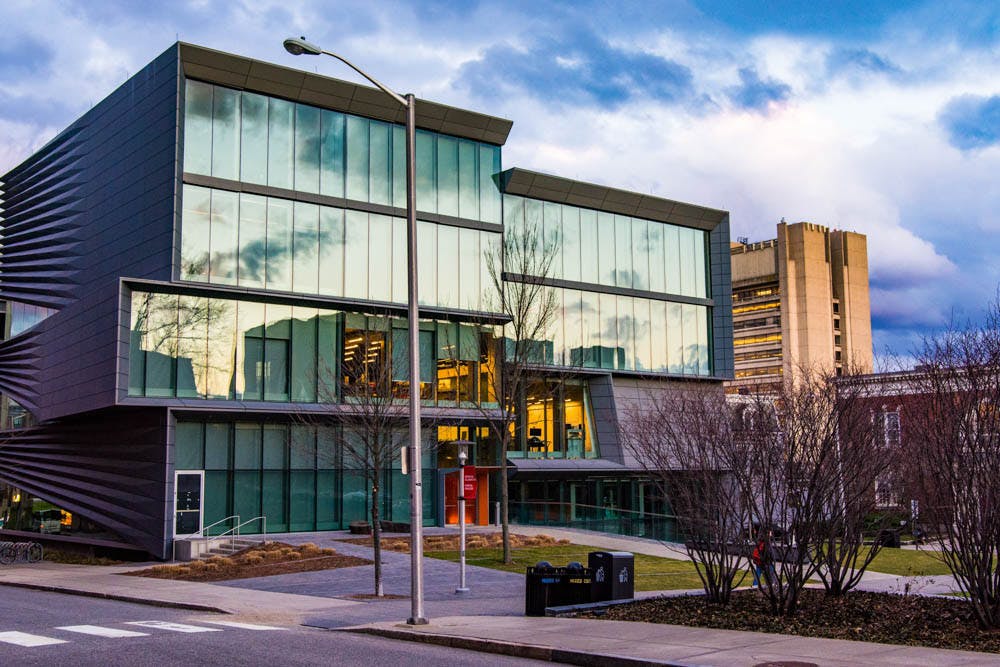After the Providence Journal reported that the University provided logistical assistance to private dinners hosted by Martin Granoff P’93, members of the student body are voicing concerns about University involvement in the events.
President Christina Paxson P’19 criticized the Sunday story and announced that the Advancement Office would no longer provide support for private events in a letter to the editor published in Tuesday’s edition of the Providence Journal, The Herald reported today.
“When people read and believe claims about an independent dinner in any way affecting any aspect of University operations, it has an unfortunate impact on our community,” wrote Vice President of Communications Cass Cliatt in an email to The Herald. “Brown’s commitment to equity is unwavering.”
The Herald spoke with 10 students approached at random across campus and received comment from two student groups. Most were unsurprised to learn the dinners exist, but many objected to the University’s role in the dinners because they believe the events exacerbate socio-economic inequality on campus.
“Anyone who pays attention knows that there are mechanisms by which rich and powerful people sort of get special advantages on campus, but it’s still kind of upsetting to see it in a concrete form,” said Ariel Weil ’21.
“It definitely (sheds) a bad light on how Brown interacts with (socio-economic) class,” said Aidan Cassel Mace ’22. “When the Advancement Office is providing the names (of students to Granoff), they’re giving those people special treatment implicitly,” he said. “You can’t do anything about how class works in the world,” but it is within the University’s power to end its direct support for exclusive and private events, he added.
Vanesa Mora ’21, who identifies as a first-generation low-income student, perceived the University’s assistance with the event as special treatment for wealthy, select students. Mora acknowledged that the University depends on donors and support to fund its mission, but said “this goes beyond legacy admissions. It goes beyond trying to get those donations. It’s just outright trying to give people (a) leg up,” she said.
She hopes to see more transparency from the University moving forward. “It didn’t need to take a journalist to expose them for them to be up-front (about) these things,” she said.
Georgia Gallant ’22 acknowledged that institutions like the University need wealthy alums to fundraise, but “the lack of transparency” around the University’s relationship to the Granoff dinner was a concern for her as well. “What was the impact of this dinner? Did it actually help the University in terms of funding or was it just kind of to boost the morale (of select students)?” she asked.
Robbie Combs ’22 agreed that the University must work to increase its transparency. “What is surprising is how long it took to come to light. Because it sounds like this sort of thing has been going on for a very long time without recognition,” he said.
“While I commend (Paxson) for ensuring that the University does not continue to aid … Granoff in the planning of these events, she definitely could have denounced the exclusivity of (them) and the messages that they send about Brown’s commitment to low-income students,” he wrote in a follow-up email to The Herald.
Jaimar Alvarez ’22 found the University’s public claim to support for diversity and equity troubling in light of the lack of transparency surrounding the dinner. Though she has hosted an exhibit in a Granoff space and acknowledged Granoff’s contributions to the University, “you just create this smokescreen of secrecy and conspiracy. And all it does is send a really convoluted message to the people that you claim to help,” she said.
Support for the dinner contradicts the University’s stated commitments to increasing diversity, Alvarez said, echoing similar sentiments shared by other students with The Herald. “Brown needs to find other ways to make money, and I think if you’re not going to find other ways to make money you need to be honest about it. … You can’t just … hide behind (initiatives like) the Diversity Inclusion Action Plan and still do shit like that, ” she said.
Paxson’s statement that she was unaware of the “logistical support” provided by the Advancement Office was “difficult to believe,” wrote Valerie Castro-Gomez ’20, a leader of First-Gens@Brown, in an email to The Herald. She was not writing on behalf of First-Gens@Brown. “We can only hope to see that this practice stops immediately,” she added. Despite the University’s efforts to support the U-FLi community, “there is so much more Brown can and should do to not only give us a seat at the metaphorical (and literal) dinner table, but also allow our voices and experiences to be heard without pity or judgement once we own a place there,” she wrote.
In response to the revelations, “First-Gens@Brown plans to allow a space for checking-in and discussion with ourselves,” Castro-Gomez wrote.
Mora found that from her perspective as a U-FLi student, the University’s support for the dinners creates “a lot of anger and frustration. … We’ve all struggled to get in, but some of us had to work a lot harder, had to go through adversity,” she said.
U-FLi Center staff has reached out to members of the U-FLi community about the article’s impact. “Our priority is to work closely with our student community and address their immediate, as well as long term needs,” wrote U-FLi Director Julio Reyes ’12 in an email to The Herald.
— Additional reporting by Metro Editor Celia Hack.





